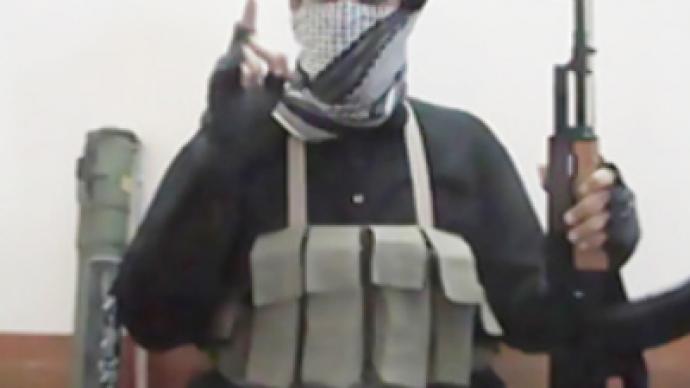Russian press on Thursday

The seventh anniversary of 9/11, the terrorism threat as it looks today, the likelihood of a new cold war, and the West’s discovery of President Saakashvili’s shortcomings as a warrior and statesman – all this can be found in today’s Russian ne
KRASNAYA ZVEZDA writes that in the seven years since the 9/11 terrorist attack in New York, the general public perception of the event has shifted immensely – from the initial sense of shock and urge for retaliation that followed in its immediate wake, to wide-spread frustration with the path that retaliation has taken.
The paper says that actions by the Bush administration over the past seven years look like a lengthy exercise in ruining America’s image and spreading negative sentiment about the U.S. around the World. Meanwhile, another article in the same page says that the terrorism threat is still there. It’s clear and present – In Russia, America, Asia and EU, there are Al Qaeda cells and Wahhabi Jamaat communities which still see terror as their main means to achieve the victory of Islam over other, in their view unfair, religious and social systems. The paper says these cells are not unlike the cells of the Bolshevik party before the Revolution, sitting tight and waiting for an opportunity to take power. Countering them will remain a common task for major world powers, concludes the paper, but their “unity in the war against terror” has proven to be, generally, a myth. Every nation has its own interests to pursue, especially in a common war against terror. The article says that when these interests are not discussed openly among allies, and some of them, usually the strongest, resort to unilateral actions, alliances fall. And fail.
NEZAVISIMAYA GAZETA in an article titled “Woe from Dough” (a paraphrase of the title of the famous Griboyedov play, Woe from Wit) writes that a research program by the American Enterprise Institute has shown a stunning result: it says the “aggressiveness” of Russia’s foreign policy at every moment in time is directly dependent on the world price of crude oil at that moment. The authors of the research insist, says the paper, that there is a special significance in the fact that Russian tanks rolled into Georgia exactly one month after the recent peak in crude oil prices.
The paper then quotes Russian economists and political scientists on the subject. Some say there has to be a mistake in the calculation and that “research results” of this kind will become more abundant with the growth of Russia’s economy and Russia’s say in international relations. Others, like Evgeny Yasin of the Higher School of Economics in Moscow, think there’s some sense in this kind of analysis, especially if you consider a comparison between today and the times of President Yeltsin, when oil prices were low. Yasin thinks these calculations work for longer periods of history, like decades, but it is dangerous to predict day-to-day policy changes by watching day-to-day fluctuations of oil prices.
NOVAYA GAZETA has an interview with Leonid Grigoriev whom it describes as a well-known Russian economist who is at the moment the most popular Russian economist with a U.S. audience. The paper attributes his popularity in America to his accurate prediction from last year that Gazprom would weather the storm that had befallen it with flying colors. Gazprom did, to the astonishment of all its American friends, foes and shareholders, so Leonid Grigoriev became popular both here in Russia and in the U.S. as “The Man who Likes to Figure it out Right”.
Now he says we should not fear a major worsening of U.S. – Russia relations, there will not be a new cold war, there will not be a new financial crisis in Russia, but there will be a problem with the fact that Russia’s financial reserve is mostly government-held and thus is not working for the national economy. If it were in the hands of the people or, rather, in their bank accounts, says the economist, that money would have been really useful in spurring the growth of innovative sectors of the economy.
Asked about the alleged imperial ambitions of Russia’s leadership, Grigoriev says there’s no way back to any kind of Soviet-like empire, and that the Russian leaders, very pragmatic people, cannot be thinking of such unrealistic things. He added: we in Russia have a much higher level of privatization than Eastern Europe. This country is totally Capitalist and nothing can be done about it. Its national interest consists, first of all, of the sum of combined private interests.
ROSSIYSKAYA GAZETA writes that a month after the Georgian attack on South Ossetia, the people of Georgia are starting to understand they had been fed horror tales about Russian occupation by president Saakashvi through television and radio. Some are even trying to voice their doubts about the way reality looks. Simultaneously, continues the paper, rumors have U.S. sponsors of Mikhail Saakashvili planning to replace him in the near future. Saakashvili’s resignation, if it happens, concludes the paper, would be happening after a direct order, no less, from the United States. But that order, says the paper, would not come as a token of goodwill towards Russia but as an inevitable punishment for a bad failure.
KOMMERSANT says of the recent U.S. Congressional hearings on the war in Georgia: during the debate Georgia was accused but Russia was not acquitted.
VREMYA NOVOSTEI says Israel is trying its best not to damage its relations with Russia through any further arms sales to Georgia. The Israeli government has banned all Israeli companies from selling any military hardware to Georgia for the time being. The paper suggests that Israel wants to be good with Russia so Russia wont be tempted to increase its own hardware sales to Israel’s arch-enemies, like Iran.
Evgeny Belenkiy, RT












